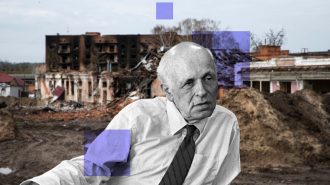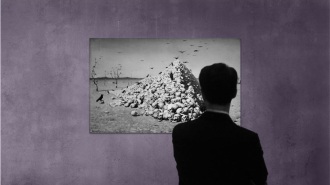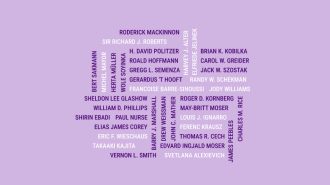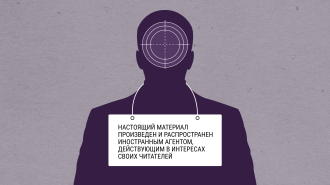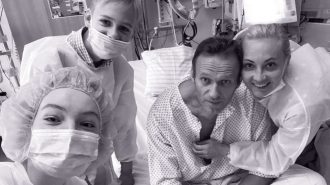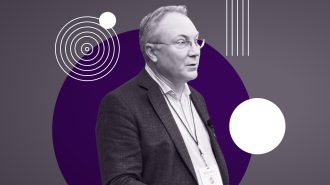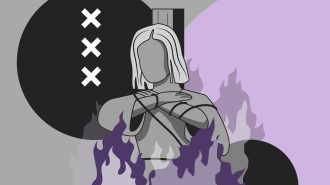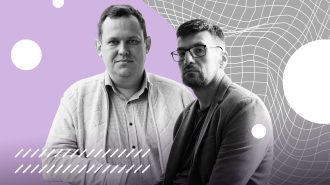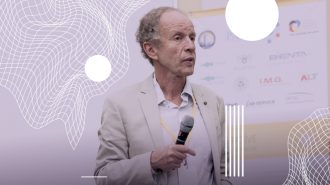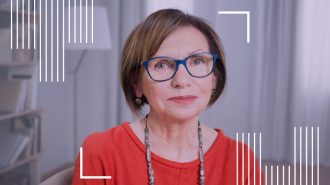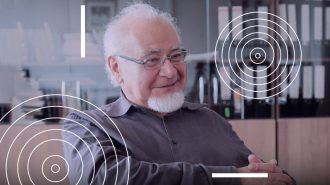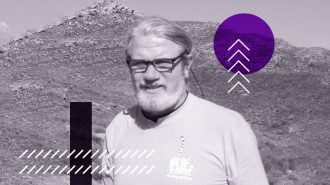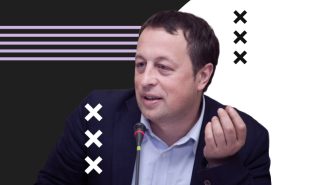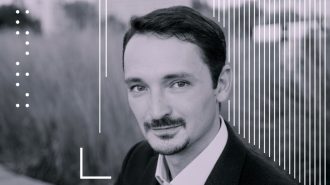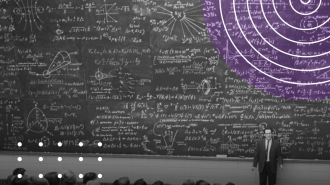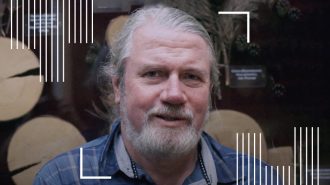The problems of various countries, including Russia, Ukraine, Israel, the USA and China, are part of the global agenda of the future of humanity, including technological and humanistic issues that are being revised today and worry many of us. About the new "dispute of physicists and lyricists" in the context of the Sakharov paradigm "Peace, progress, human rights" - in the column of the professor of the University of North Carolina Alexander Kabanov.
Standpoint
How does war become routine, heroic and ordinary? Do you need to look at photographs of hostages every day? Where is the line between adapting to war and rejecting conflict? These questions were discussed by the participants in the discussion “Normalization of Evil” - urban geographer Aleksey Novikov, visiting researcher at Ariel University Viktor Vakhshtain and communication specialist Grigory Ogibin.
42 Nobel laureates called on world leaders to increase aid to Ukraine, protect political prisoners in Russia and not recognize Putin as the legally elected president.
According to the Ministry of Justice, “the T-invariant project opposed the special military operation in Ukraine and carried out public actions aimed at creating a negative image of the Armed Forces of the Russian Federation.”
On February 16, 2024, came the terrible news — Alexei Navalny was killed. His death has become a personal tragedy for millions of people. Putin's regime has shown that it will stop at no crime in pursuit of its goals.
T-invariant publish open letter by Alexander Kabanov, Mescal S. Ferguson Distinguished Professor, Director, Center for Nanotechnology in Drug Delivery Chapel Hill, UNC. He writes: "The terrorist attack on Israel on October 7, 2023, shocked me deeply. I was also disappointed by the statement issued by the UNC Chapel Hill Faculty, Graduate Students, and Staff Regarding Justice in Palestine, which said, among other things, “…We believe that an understanding of such loss must be situated within the historical and political context of ongoing colonial oppression.” On November 3, 2023, I sent a brief note to about 40 UNC faculty members who had signed this statement by then..."
How do Russian-speaking scientists work in America today during the war in Ukraine? Why is it important to maintain contact with colleagues from the countries of the former USSR? What awaits Russian science after Putin? We talked about these and other topics with Igor Efimov, professor of biomedical engineering and medicine at Northwestern University in Chicago, first president of RASA.
In Ivanovo, under strange circumstances, Olga Nazarenko, associate professor of the department of pharmacology of the Ivanovo State Medical Academy and political activist, died from numerous injuries. The lawyer was unable to get an investigation into the causes of her death and gain access to a medical report on the causes of death, so she is going conduct your own investigation. T-invariant spoke with the lawyer of the deceased and some other local activists who knew Olga personally and mourn her death.
Behind the names in the “Chronicle of the Persecution of Scientists”, which is jointly conducted by T-invariant and CISRUS, there are specific people forced to fight for their civil and academic freedoms. We decided to tell in detail who and why decides to go against government pressure in science and education. The first material focuses on the history of Novokolledzh, one of the largest colleges in Russia.How did the institution begin to work, despite the refusal of accreditation and the resignation of the director, candidate of historical sciences Sergei Chernyshov? Why do the new director Yuri Lobanov and Sergei Chernyshov himself not give up their professional and civic positions? Yulia Chernaya spoke with the former and current leaders of Novocollege - Sergei Chernyshov and Yuri Lobanov.
How science helps resist the archaic, explains Eugene Koonin, Senior Investigator at the National Center for Biotechnology Information at the U.S. National Institutes of Health.
Irina Savelieva, former director and one of the founders of the A.V. Poletaev Institute for Humanitarian History and Theory Research at the National Research University Higher School of Economics, talks about the rise, heyday and end of the famous institute, the impact factor, the «5-100» program and the academic kitchen of the Higher School of Economics.
How do random variability, heredity, and selection work in cultural evolution? Wars as fluctuations in cultural evolution, lessons from Franklin's missing expedition, hierarchy of prestige, copying of skills, level of trust and natural selection of ideas, competitive environments without wars — Alexander Markov talks about all this in episode 4 of the podcast «Invasion».
Is modern war in terms of cultural evolution the norm or the terrible exception? Was Steven Pinker wrong when he wrote his book «The Best in Us: Why There's Less Violence in the World»? Aleksandr Markov, doctor of biological sciences, argues in episode 3 of Olga Orlova's podcast «Invasion. Science in a Time of War.»
Philologist Boris Gasparov, professor at Columbia University in New York spoke in an interview with T-invariant about his new book, the impossibility of doing Russian cultural history today, and why the current emigration of intellectuals is more like the German emigration of the 1930s than the «philosophical steamer.»
Why is it important for global science to maintain ties with the scientific community in Russia? Arguments of
Associate Professor at the University of Johannesburg Aleksei Oskolski.
The Board of Directors of RASA (Russian American Science Association) expresses full and unconditional support to a valued member of our association Professor Konstantin Sonin of the University of Chicago, in connection with a recent reports that a criminal case has been opened against him in Russia on suspicion of publicly disseminating of allegedly «false information about the use of the Russian Armed Forces».
Why does it make no sense to stop training ChatGPT and other artificial intelligence models? Denis Tulinov, author of the telegram channel «Vagus nerve», discusses in his column for T-invariant.
What happens to Russian Studies in the general field of social sciences and humanities after the start of the war?
What is the measure of responsibility of social scientists for what happened? T-invariant spoke with Victor Vakhshtayn, professor at the Department of Social Sciences at the Moscow School of Social and Economic Sciences (Shaninka).
What won't allow to build in isolation a mathematics comparable in power and diversity with the Soviet one? The intellectual generation gap, giving rise to gerontocracy, marginalization, and the spread of pseudoscientific schools, suggests Corresponding Member of the Russian Academy of Sciences Ilya Shkredov.
Breaking international ties with Russian scientists will lead to results directly opposite to those hoped for by Ukrainian scientists who called for such a boycott in their open letter, says Alexei Oskolski, a member of the Coordinating Council of T-invariant.


